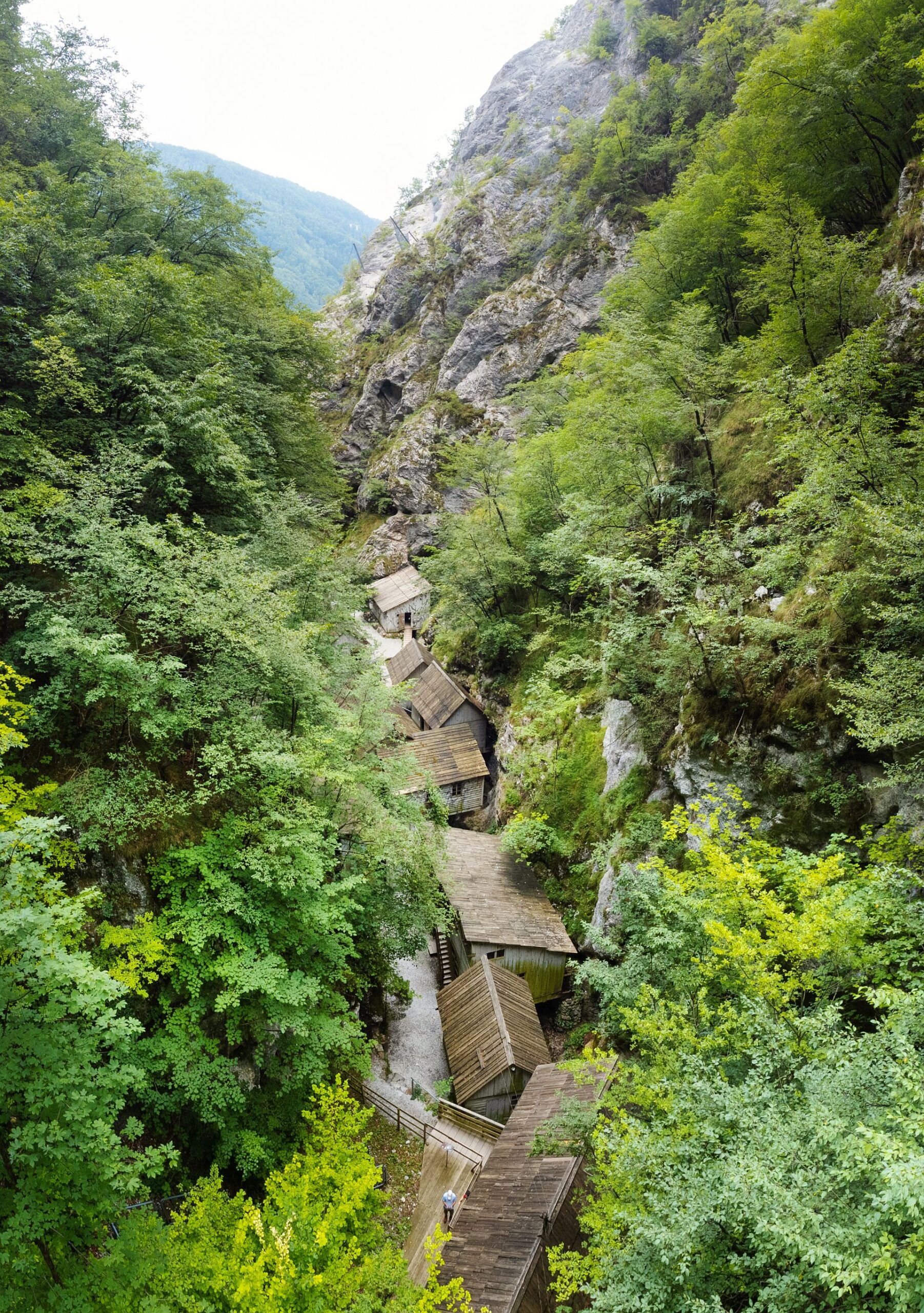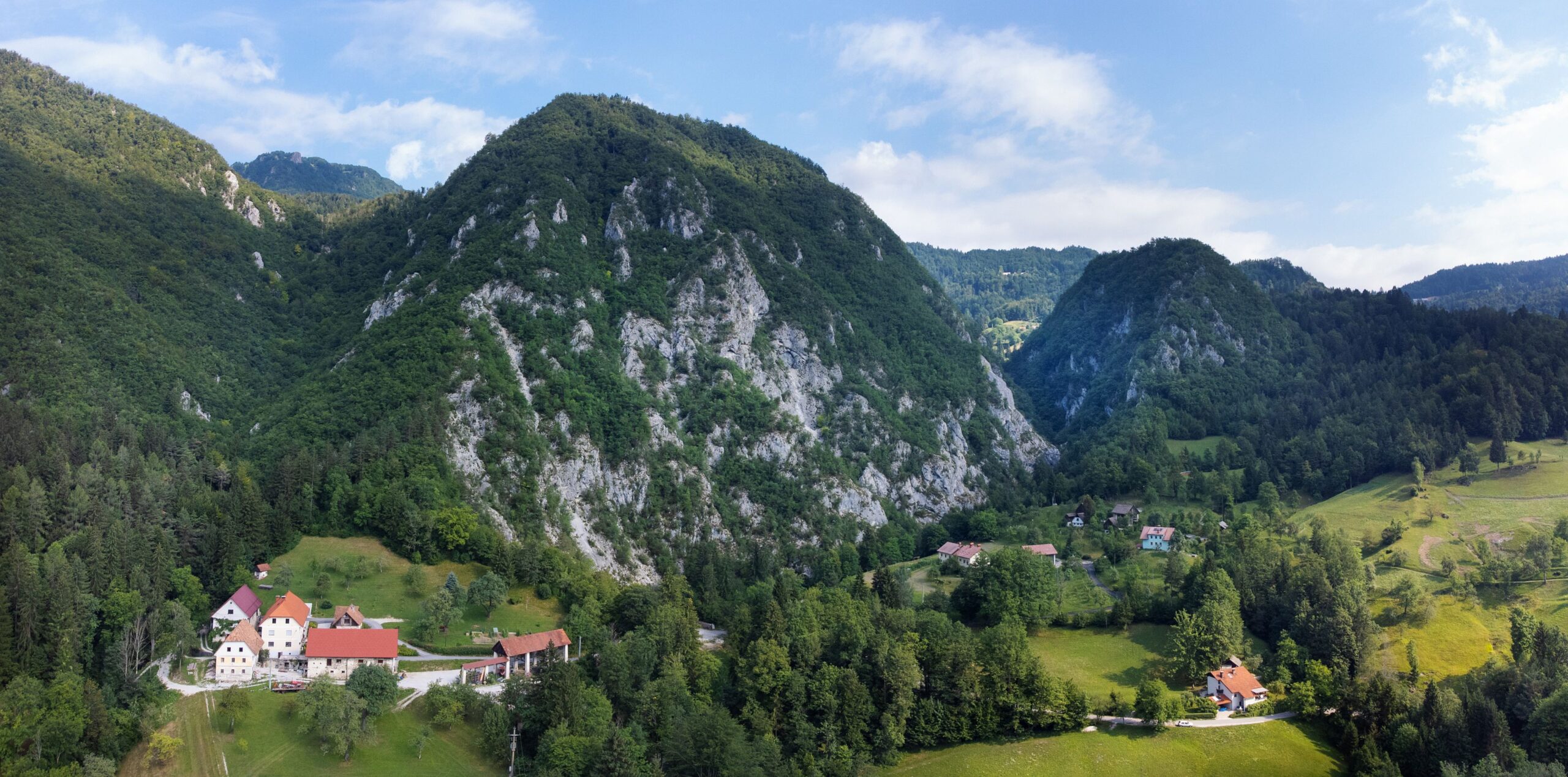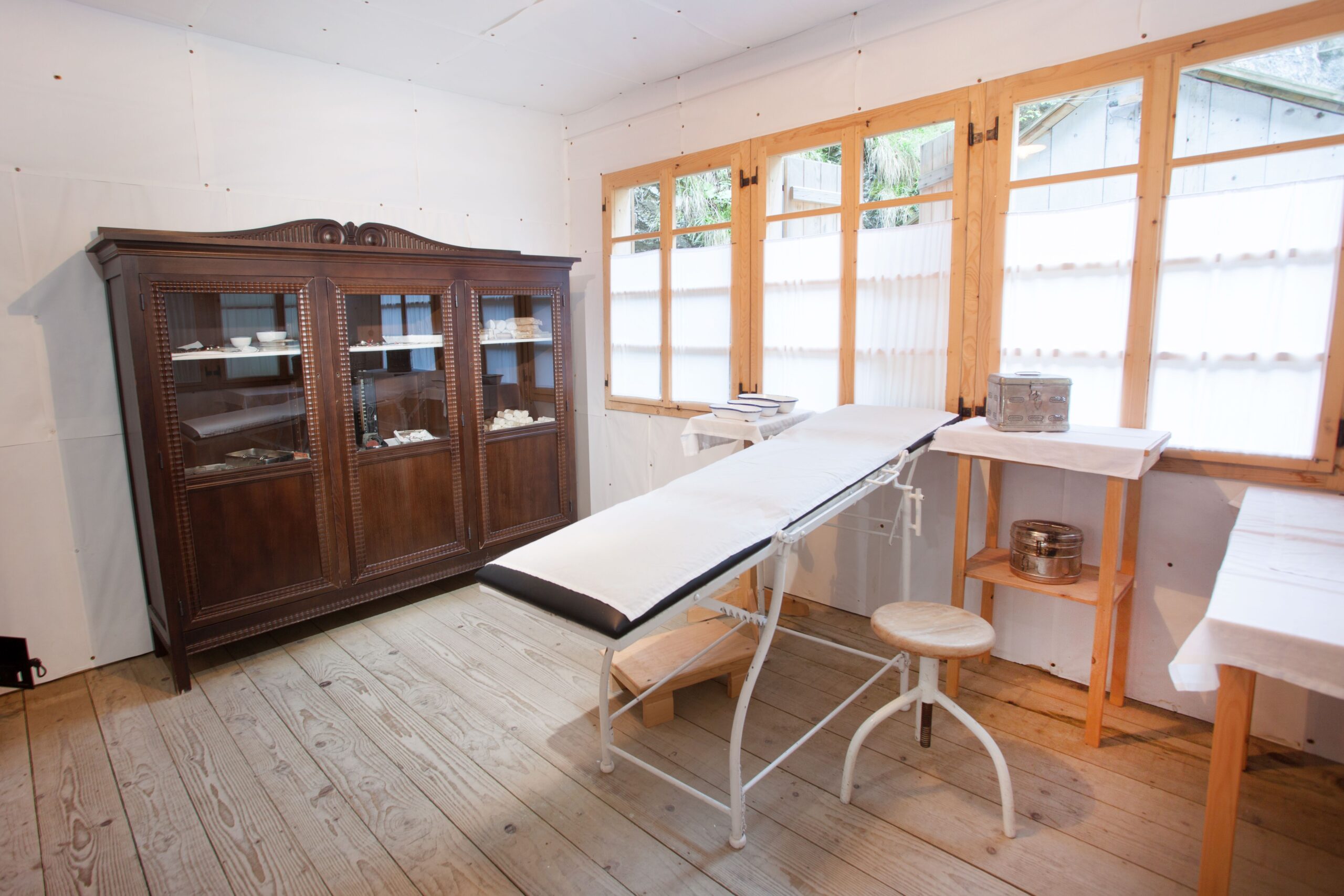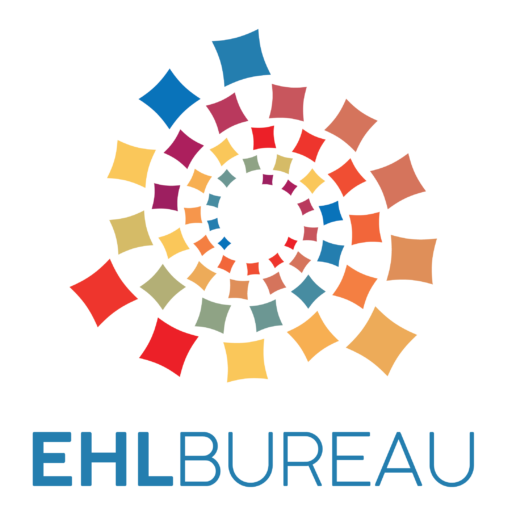This website uses cookies so that we can provide you with the best user experience possible. Cookie information is stored in your browser and performs functions such as recognising you when you return to our website and helping our team to understand which sections of the website you find most interesting and useful.
Franja Partisan Hospital



The EHL Site
The Partisan Hospital Franja was a part of the medical service organized by the Slovenian resistance movement during World War II. An exceptionally sophisticated hospital system operated with significant support from the civilian population, who often risked their lives to help wounded soldiers. For security reasons, these hospitals were constructed in forests and other remote, hard-to-reach locations. The hospital in the Pasice gorge near Cerkno in northwestern Slovenia operated from December 1943 to May 1945. Over 600 seriously wounded patients of various nationalities were treated there, all united in their goal of defeating fascism and Nazism. They also provided assistance to civilians and even soldiers from the occupying forces.
The hospital was founded by Dr. Viktor Volčjak, a physician, but it was led for the longest period by Dr. Franja Bojc Bidovec, who the hospital was named after during the war. By the end of the war, it consisted of 14 wooden structures of various sizes and purposes, ranging from barracks for patients and staff to surgery cabin, isolation unit, X-ray facility, an invalid care facility, a kitchen, laundry and washroom and storage. Dr. Franc Podkoritnik, one of the doctors at the hospital, wrote during the war that “Even after the war, this refuge should be preserved as visible evidence to all future generations of what the love for freedom can achieve.”
The monument, located in an extremely challenging natural environment, has faced various disasters in the decades following the war, including snow and landslides and floods. In 2007, it was nearly completely destroyed by flood. Solidarity and mutual assistance, including international support, were crucial in its restoration and reopening to the public in 2010.
In July 2023, the area was affected by two natural disasters, first flood and then a windstorm. The restoration will be demanding and long-term, so the monument is closed for visits until further notice. In the meantime, in the museum department in Cerkno, an exhibition titled “Partisan Hospital Franja – the Hidden Gem of Europe” displays items that were transferred from the Hospital Franja.
European dimension
Due to its symbolic value and role in European history and culture, the Partisan Hospital Franja received the European Heritage Label in 2014. It is a unique example of healthcare in extraordinary circumstances and an exceptional symbol of humanity, solidarity, and camaraderie among locals, hospital staff, and wounded soldiers who fought against fascism and Nazism during World War II.
The fundamental values of the European Union – respect for human dignity, freedom, equality, and the respect for human rights – are demonstrated in various aspects of the operation of Hospital Franja, both in the past and the present. During its operation, the hospital brought together people of different nationalities, regardless of their worldviews, cultural, religious, and linguistic differences. All were treated with equal care and professionalism. The hospital also exhibited a high degree of tolerance and cultural dialogue. The principle of gender equality was also upheld in the hospital. It was very successfully led by a woman, Dr. Franja Bojc Bidovec, who was respected and esteemed by the staff. In addition to men, women diligently and reliably performed the work of medical and support staff.
Partisan Hospital Franja is a place of memory that contributes to the strengthening of a culture of peace through its existence and testimony. Visitors are aware of this, as they recognize its messages and values in their impressions and emphasize the importance of preserving a living memory of the wartime past. One of the visitors wrote: “Visiting Franja is a strong experience that takes us back to the roots of all Europe.”
The organization
In 2023, it marks 60 years since the care of the Partisan Hospital Franja was taken over by the Idrija Municipal Museum, a museum for the Idrija and Cerkno regions. The museum, of a general nature, is primarily recognized in the broader region for its responsibility for the technical heritage of the Idrija mercury mine, the second-largest mercury mine in the world, the heritage of Idrija lace-making, and the famous World War II hospital, Partisan Hospital Franja.
Monuments of technical heritage, which the museum also manages among others, were inscribed on the UNESCO World Heritage List in 2012, along with the rest of the heritage of the Idrija mining area. Partisan Hospital Franja, in 2014, became the first monument area in Slovenia to receive the European Heritage Label. The museum carries out its activities in its main unit in Idrija and a dislocated department in Cerkno. It manages exceptional immovable heritage sites, which were entrusted to it by the Municipality of Idrija at its establishment in 1953 or were gradually placed under its auspices.
The museum emphasizes its role in the educational process and, with its permanent and temporary exhibitions, acts as a bridge between textbook history and the real remnants of the past on-site. For visitors to the Partisan Hospital Franja, guided tours and various programs are prepared for both young people (educational hours, workshops, art competitions) and adults (lectures, concerts, commemorative events). Also, a traveling exhibition titled “Partisan Hospital Franja – the Hidden Gem of Europe,” has been hosted in various locations in Slovenia, Croatia, and Bosnia. Currently, it is on display at the Cerkno Museum unit.
